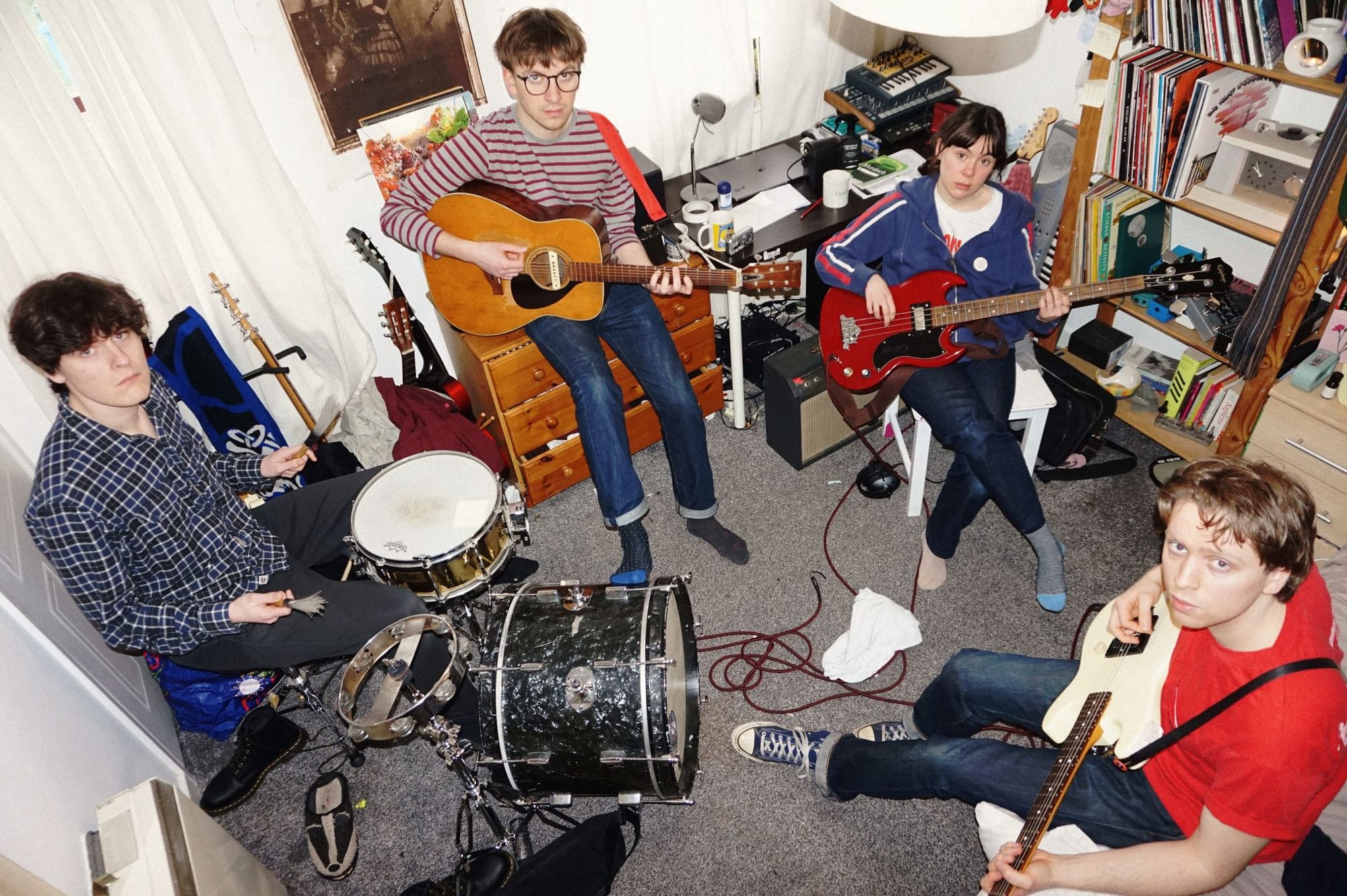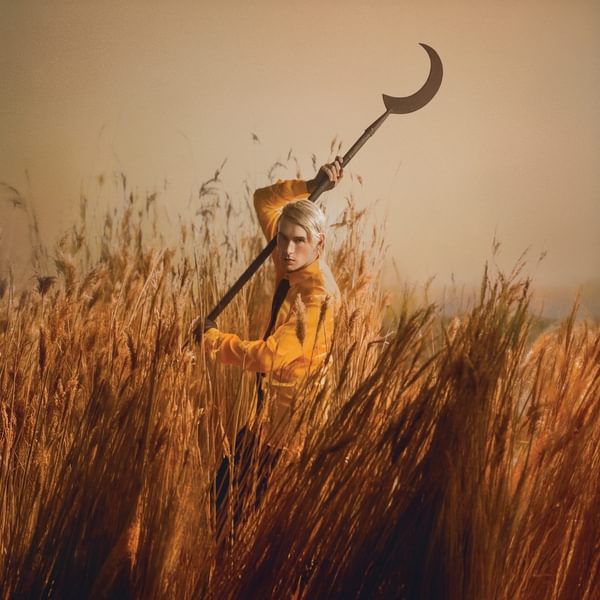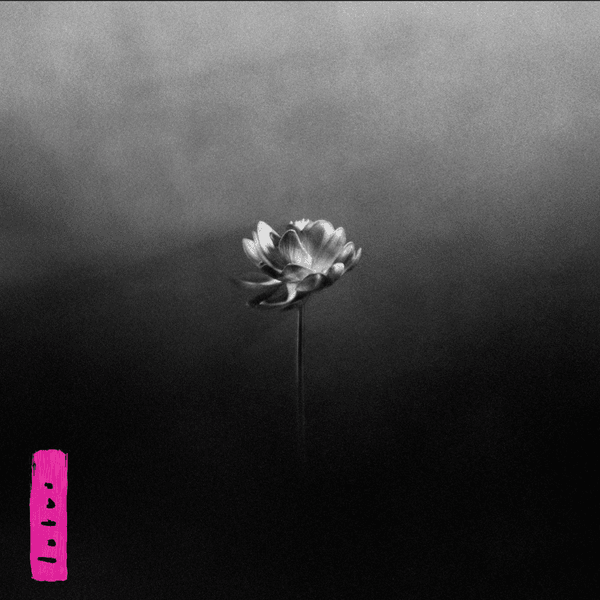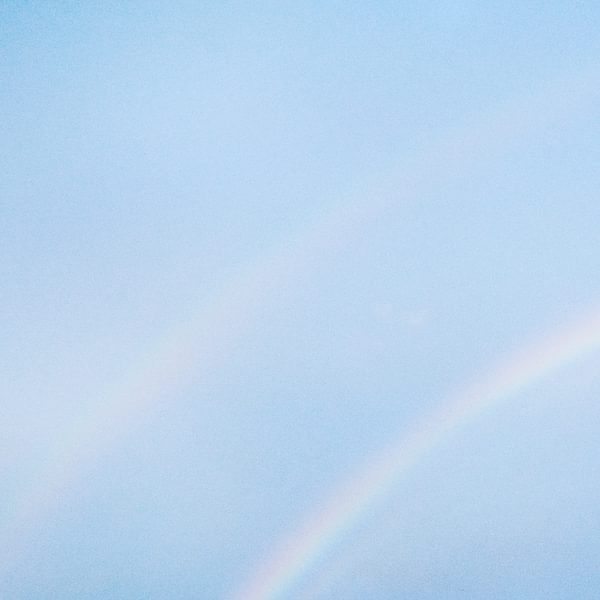
On the Rise
Westside Cowboy
Manchester quartet Westside Cowboy are making noise with heart-first songs set to stand the test of time.
When Westside Cowboy join the Zoom call, it’s with an indistinct clamour. I can hear overlapping voices as the vertical window on my screen rotates through fuzzy frames, but soon their faces come into view.
The quartet – made up of Reuben Haycocks, Paddy Murphy, Aoife Anson O’Connell, and James Bradbury – are all piled into Murphy’s car. As they scramble for a capo to use as a makeshift phone stand, they tell me that they’re finishing off their last week of university and they’re heading for the pub. It’s an entrance that feels perfectly on-brand: casual and charmingly chaotic. It’s the kind of scene that you could imagine soundtracked by one of their own frenetic, harmony-laced tracks.
Westside Cowboy weren’t supposed to go anywhere – and that’s exactly why they have. The band didn’t set out to be a “real band,” they simply enjoyed playing skiffle covers together in a bedroom, unburdened by ambition or polish. After a video of the band playing caught the eye of a listener eager to hear more, they sent out a demo tape that would be circulated wider than anticipated. Suddenly, Westside Cowboy’s affinity for rehearsing old folk tunes hurtled into something greater than an inside joke hidden within those four walls. Now, they’ve co-signed with taste-making independent label Nice Swan Records and Heist or Hit, caught the attention of BBC Introducing, and have been booked to play Glastonbury this summer after winning the 2025 Emerging Talent Competition – all before the release of their debut EP, This Better Be Something Great, which arrives this August.
“It’s funny – over the past couple of months, as people have started paying a bit more attention, we’ve had a bit of friction in thinking, ‘This wasn’t the plan at all,’” Murphy tells me when I ask how Westside Cowboy came to be. “Though, we are super happy that it’s happening!” Haycocks goes on to clarify that the friction is not within the band as a unit, but rather, what their unexpected reception means for them. “It’s friction with our perceptions of what the band is and how it will continue, because we were never expecting it to be real,” he elaborates.
Despite playing together for a year and a half, the band agrees that it wasn’t until they performed at The Great Escape that reality set in. Bradbury summarises the collective shock with his own reflection. “It kind of hit me after we played The Deep End stage on the beach. I didn’t feel that I played very well, but people seemed to like it. I ran into some friends and was speaking to them for ages until someone tapped me on the shoulder and said people needed to speak to me now. I was like, ‘What do you mean, I’m just hanging out?’ Then it was like, ‘Oh God, I’m in a band!’”
O’Connell goes on to point out that although they are in the early stages of processing their abrupt success, they remain grounded in their DIY origins. “We’re quite militant about not changing from who we are when we were playing in the bedroom,” she tells me. “I believe that we haven’t, but I hope that if anyone thinks we have, they will pull us up on it. It’s nice to know that we’re still the same band, so we must have always been one and these things don’t validate it. It’s just music and you’re playing with your mates, but suddenly people are paying a bit more attention – which is lovely.”
Before coming together as Westside Cowboy, Haycocks, Murphy, O’Connell, and Bradbury were orbiting one another in various groups – with The University Of Manchester acting as the barycentre. Haycocks, Murphy, and O’Connell met during freshers week and quickly hit it off. Within two days, Haycocks and Murphy started a band called DieKaiDai. “It was very different, it was noisy. We tried to make it poppy, but ultimately it sounded very confused and very young,” Haycocks tells me. “We made all the mistakes that were possible to make being in a small band.”

Meanwhile, Murphy and Bradbury were in a band called Katz, which Bradbury describes as “a three-piece surf-punk band that played so fast it ceased to exist.” Mid-sentence, the band’s attention diverts to a car driving past. They fill me in on their observation, explaining that someone had gone the wrong way down the one-way system, which feels oddly symbolic of the difficulty that they ran into with their earlier projects. “We got sick of those bands,” Murphy says. “We were sick of slamming our heads against the wall and feeling like things weren’t natural to do.”
When walking the dichotomous line of surf-punk and noise-rock-pop started to feel like a dead end, it was an encounter in Johnny Roadhouse – the renowned music shop where Bradbury worked at the time – that led them to change course. The conversation was simple.
“James was like, ‘Do you want to start a band called Westside Cowboy?’” Murphy recounts. “And we were like, ‘Yeah.’” O’Connell – a cellist who had never picked up a guitar – joined on bass and took to it naturally. With Haycocks on vocals and guitar, Murphy on drums, and Bradbury on guitar, they ditched experimental music and stripped the music back to its simplest form. “We just wanted to play a fucking song again,” Murphy says, referring to the less complicated structure of traditional pop music that they grew up with.
For the most part, tradition exists as the foundation for Westside Cowboy. However, this is not to suggest that their sound is dated. The word that they use to describe it is “Britainicana.” It’s their own coinage to describe American roots music reinterpreted through a very English lens, and it’s not static. The band tells me what represents “Britainicana”: The La’s, Johnny Roadhouse, Violent Femmes, Chappell Roan, and Back to the Future. It feels limitless. “We grew up smothered by American media – films, TV, all of it,” Murphy explains. “Like with everything, when you’re a kid, you seek to emulate it. But you live in rural north-west England. You’re not on the Sunset Strip, or Manhattan,” he continues, earning chuckles in agreement.
Rather than reject those borrowed influences, they transmute them by reimagining Americana through the British DIY tradition that they know while embracing the contradiction that comes with it. This intention was set from the very start when they played their very first gig as Westside Cowboy in a coffee shop, inspired by their interpretation of early British rock n roll shows: accessible and fuelled by a caffeinated buzz, while being just scuzzy enough to also mirror a punk rock energy.
Their debut single “I’ve Never Met Anyone I Thought I Could Really Love (Until I Met You)” possesses that timelessness and fluidity, a fidgety rush of fuzz and feeling that’s equal parts Pixies, Pavement, and 1960s rock n roll. It opens with a howl of “Westside Cowboy!” before launching into a thick electric sprint, anchored by O'Connell's spiky vocal and a group dynamic that feels instinctive and unrefined. Recorded live, the track is exemplar of the band’s intent: a blunt, beautiful song that can be bellowed in a pub for decades to come.
That idea of energy and its transmission is central to Westside Cowboy’s live presence. Their shows feel like small-scale revivals: loud, loose, and always reaching outwards. “We want people to feel like they don’t need any prior knowledge. We don’t want anyone to feel intimidated,” they say. From coffee shops to major stages, they’re carrying that ethos with them, even if the venues are getting bigger. “We still use the same gear, wear jeans and a t-shirt, our mate Ben from Katz does our front-of-house,” they grin. “Even when we’re in Europe, it’s just gonna feel like an extra long drive to London.” An all-vegan band, O’Connell lets me in on their most pressing concern: whether they might need to bring chickpeas, pesto, and a camping stove.
Still, there’s tension. As the band’s visibility grows – with festival sets at Green Man, Glastonbury, as well as tours alongside Black Country, New Road and Blondshell – the balance between instinct and expectation becomes trickier. Their answer? The ‘Westside Cowboy Manifesto’. Haycocks tells me that the manifesto is a set of rules that they rely on to avoid becoming overly critical of their work during the songwriting process. Collectively, they speak with real clarity about simplicity and not overthinking the art. “The faster and less thought-out the better.” Their creative shorthand is sharp and natural, but also underpinned by humour – something they insist is essential. “We don’t like it when bands are super serious on stage. There’s nothing better than watching four people do something that you genuinely believe they love.”
Their lyrical world reflects this too. Westside Cowboy songs are filled with grounded details – bus routes, skulls in museums, bad jobs, and imagined cowboys – painting a hazy, heartfelt mythology from everyday observations. “We write about the stuff we know. We’re not dancing around maypoles,” they laugh. “But we like the idea that if a lyric’s specific enough to latch onto, but vague enough to be open, then it’s working.”
If you ask what holds them together, they say Johnny Roadhouse without skipping a beat. But their connection goes beyond the beloved music shop – they are close friends first. “We all love Westside Cowboy,” O’Connell says in earnest. “I’d say every one of us is 25% Westside Cowboy. If someone left or didn’t want to be in the band, then it’s over.” Thankfully, this doesn’t seem like a looming possibility. Although they may still feel daunted by the idea that this is now something real, mostly, they feel excited. “We just feel lucky. It’s grown naturally. And we’re looking forward to everything. More music, more gigs, more ‘No Band Is An Island’ charity shows back in Manchester. We can’t wait.”
In the end, Westside Cowboy are doing something deceptively rare: making music that’s timeless by refusing to chase time. Whether in a coffee shop, a car, or a cramped festival slot, they make you believe in the moment, and in the idea that sincerity, noise, and a few chords are all that you need. Much like their namesake – the 19th century figure who rode out ahead of freight trains on horseback, waving a red flag to warn pedestrians – they’re charging forward.
The “West Side Cowboy” was a DIY solution to an industrial problem, and the band sees a kindred spirit there. “It’s like a simple answer to a modern problem,” they say. “That’s how we think about music too.” In a musical era obsessed with complexity, they’ve carved out their own route. They warn of the noise to come, not with polish or pretence, but with gut instinct and total sincerity. Riding ahead, waving the flag. But in their own words, “It’s nothing crazy in the grand scheme of things though. We’re hardly The Strokes!”
Get the Best Fit take on the week in music direct to your inbox every Friday

Patrick Wolf
Crying The Neck







